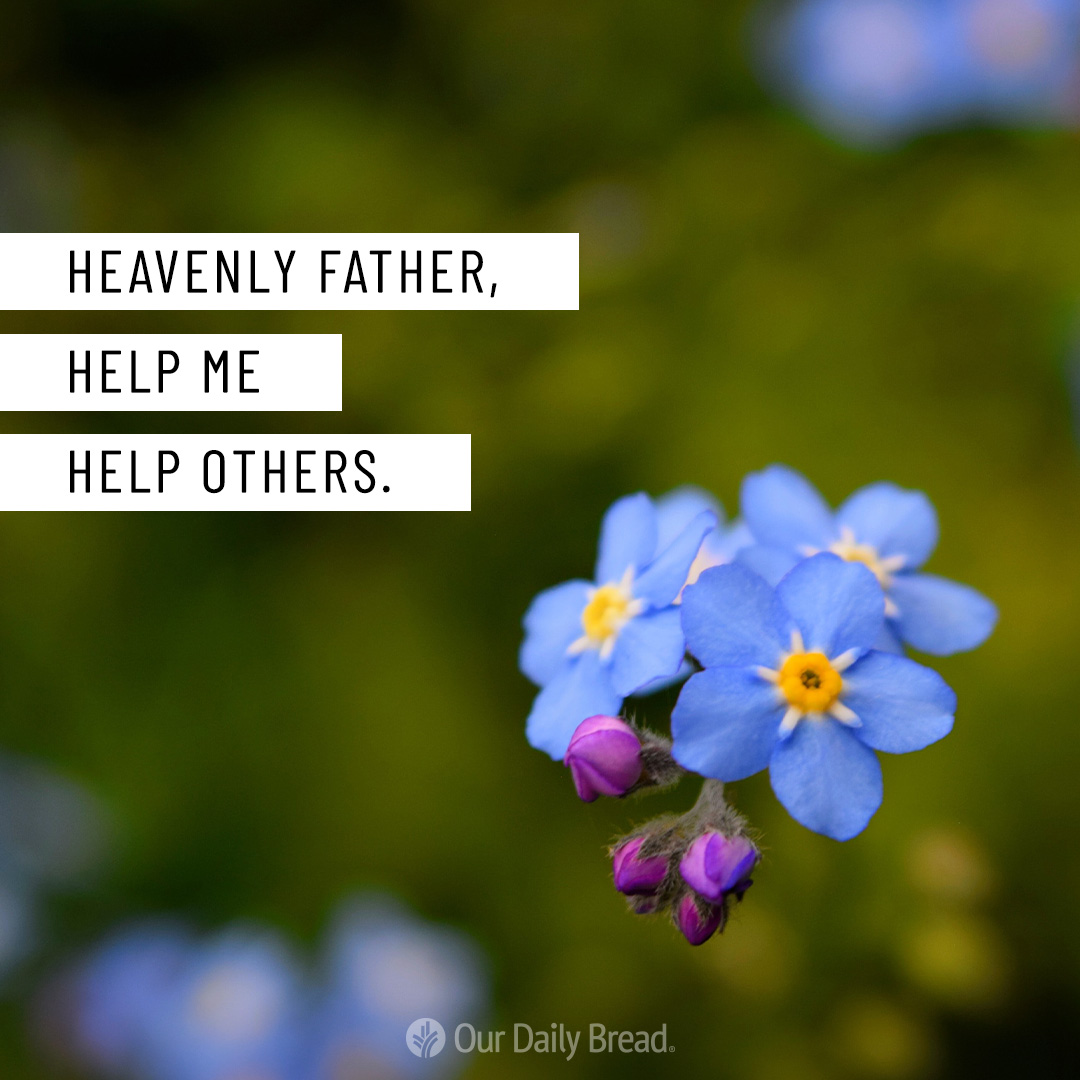A Compassionate Father
After eight-year-old Gabriel underwent surgery to remove a tumor from his brain, it left a noticeable scar on the side of his head. When the boy said he felt like a monster, his dad, Josh, had an idea: demonstrate how much he loved his son by getting a tattoo on the side of his head with the same shape as Gabriel’s scar.
According to the psalmist, this is the kind of empathic and compassionate love God has for “his children” (Psalms 103:13). Using a metaphor drawn from human life, David illustrated God’s love. He said it’s as tender as a good father’s care for his children (v. 17). Just as a human father shows compassion to his children, so God, our heavenly Father, shows love and care toward those who fear Him. He's a compassionate father, who empathizes with His people.
When we’re weak and feel like we’re unlovable because of the scars of life, may we receive, by faith, our heavenly Father’s love toward us. He demonstrated His compassion by sending his Son to lay “down his life for us” (1 John 3:16)—for our salvation. With this one act, not only can we experience God’s love for us, but we can look to the cross and see it. Aren’t you glad that we have a High Priest who can “empathize with our weaknesses” (Hebrews 4:15)? He has the scars to prove it.

The Making of Me
Seven-year-old Thomas Edison didn’t like or do well in school. One day, he was even called “addled” (mentally confused) by a teacher. He stormed home. After speaking with the teacher the next day, his mom, a teacher by training, decided to teach him at home. Helped along by her love and encouragement (and his God-given genius), Thomas went on to become a great inventor. He later wrote, “My mother was the making of me. She was so true, so sure of me, and I felt I had someone to live for, someone I must not disappoint.”
In Acts 15, we read that Barnabas and the apostle Paul served together as missionaries until they had a major disagreement about whether or not to bring along John Mark. Paul was opposed because Mark had earlier “deserted them in Pamphylia” (vv. 36–38). As a result, Paul and Barnabas split; Paul taking Silas and Barnabas taking Mark. Barnabas was willing to give Mark a second chance, and his encouragement contributed to Mark’s ability to serve and succeed as a missionary. He went on to write the gospel of Mark and was even a comfort to Paul while he was in prison (2 Timothy 4:11).
Many of us can look back and point to someone in our life who encouraged and helped us along our way. God may be calling you to do the same for someone in your life. Who might you encourage?

Crushed and Beautiful
At first glance I dismissed the painting Consider the Lilies by Makoto Fujimura as a simple, monochromatic painting featuring a lily seemingly hiding in the background. However, the painting came alive when I learned it was actually painted with more than eighty layers of finely crushed minerals in a style of Japanese art known as Nihonga, a style Fujimura calls “slow art.” Looking closely reveals layers of complexity and beauty. Fujimura explains that he sees the gospel echoed in the technique of making “beauty through brokenness,” just as Jesus’ suffering brought the world wholeness and hope.
God loves to take aspects of our lives where we’ve been crushed and broken and to create something new and beautiful. King David needed God’s help to repair the brokenness in his life caused by his own devastating actions. In Psalm 51, written after admitting to abusing his kingly power to take another man’s wife and arrange the murder of her husband, David offered God his “broken and contrite heart” (v. 17) and pleaded for mercy. The Hebrew word translated “contrite” is nidkeh, meaning “crushed.”
For God to refashion his heart (v. 10), David had to first offer Him the broken pieces. It was both an admission of sorrow and trust. David entrusted his heart to a faithful and forgiving God, who lovingly takes what’s been crushed and transforms it into something beautiful.

The Marriage Metaphor
After twenty-two years together, I sometimes wonder how my marriage to Merryn works. I’m a writer, Merryn is a statistician; I work with words, she works with numbers. I want beauty, she wants function. We come from different worlds.
Merryn arrives to appointments early, I’m occasionally late. I try new things on the menu, she orders the same. After twenty minutes at an art gallery I’m just getting started, while Merryn is already in the cafe downstairs wondering how much longer I’ll be. We give each other many opportunities to learn patience!
We do have things in common—a shared sense of humor, a love of travel, and a common faith that helps us pray through options and compromise. With this shared base, our differences even work to our advantage. Merryn has helped me learn to relax, while I’ve helped her grow in discipline. Working with our differences has made us better people.
Paul uses marriage as a metaphor for the church (Ephesians 5:21–33), and with good reason. Like marriage, church brings very different people together, requiring them to develop humility and patience and to “[bear] with one another in love” (4:2). And, as in marriage, a shared base of faith and mutual service helps a church become unified and mature (vv. 11–13).
Differences in relationships can cause great frustration—in the church and in marriage. But managed well, they can work to our advantage, helping us become Christlike.

Grace for Trials
Annie Johnson Flint was crippled by severe arthritis just a few years after high school. She never walked again and relied on others to help care for her needs. Because of her poetry and hymns, she received many visitors, including a deaconess who felt discouraged about her own ministry. When the visitor returned home, she wrote to Annie, wondering why God allowed such hard things in her life.
In response, Annie sent a poem: “God hath not promised skies always blue, flower-strewn pathways all our lives through. . . .” She knew from experience that suffering often occurred, but that God would never abandon those He loves. Instead He promised to give “grace for the trials, help from above, unfailing sympathy, undying love.” You may recognize that poem as the hymn “What God Hath Promised.”
Moses also suffered and faced strife, but He knew God’s presence was with him. When he passed his leadership of the Israelites to Joshua, he told the younger man to be strong and courageous, because “the
Disciples of Christ will face hardship and strife in this fallen world, but we have God’s Spirit to comfort and encourage us. He will never leave us.